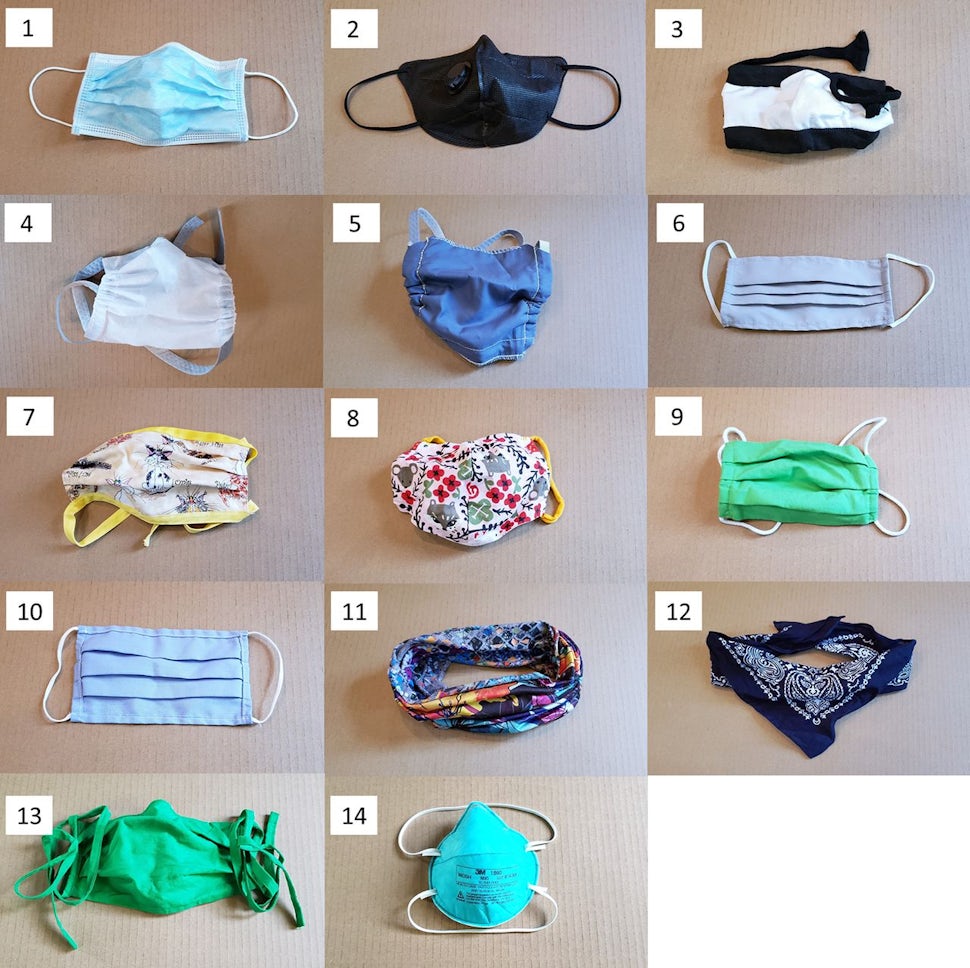Are Neck Gaiters Actually Worse Than No Masks at All? No, not really.
There have been a lot of sensational headlines about this study. Are gaiters "worse"? The data is unclear. But a normal mask is still better.

There's been a study by Duke University making the rounds this week which headlines purport to show that neck gaiters are actually *worse* than wearing nothing at all when it comes to preventing the spread of COVID-19. At least, that's what the headlines say.
Except...that's not what the study actually says. Let's dive in a bit and break down these conclusions.
1. This was not a "study" of protective equipment in the traditional sense, it was a proof of concept for a cheaper, easier way to actually test. They successfully devised a testing setup to count droplet spread using a laser and camera.
However, because the goal was not to actually evaluate the efficacy of the protective materials themselves, the study didn't include a large number of people, and the conclusions that most headlines are touting are largely extrapolated from *one* subject. Let's be clear, the study was successful in what it intended to do -- but news organizations are drawing conclusions from that data that aren't really supported.
2. Because the sample size is so small, there could be numerous extraneous factors affecting the results. First, the primary test was someone talking, not just breathing (which would change results for people like runners who are often primarily just breathing). Maybe the guy spits when he talks. Maybe the gaiter didn't fit great. Maybe it was a super cheap/thin gaiter. This is also evident in the standard deviation (basically the margin for error) in the gaiter (fleece) results.
3. The study suggest that the neck gaiter resulted in a more droplets because the gaiter split large droplets into a smaller droplet size (thus, increased droplets). This is the primary mechanism by which "worse" is being determined. However, it does not take into account whether droplet speed was affected (therefore preventing spread), or whether this even matters for transmissibility.
A quote from the authors:
" As we stated in the paper, our work was a preliminary study that included one fleece mask (also called gaiter mask, or neck gaiter) only -- we did not do a systematic study involving many masks, speakers and wear conditions. More studies are needed to make specific use recommendations."
What does this all mean?
At the end of the day, we already know that a true mask is going provide significantly better protection than a gaiter. However, this particular set of data definitely doesn't show that a gaiter is objectively *worse* than no mask at all, and I'm not sure we want anyone to think that it would be better to go without a mask than with a gaiter.
Is it possible that a particular type of gaiter, under particular conditions is worse than nothing? Maybe, although it seems unlikely. Regardless, if you want to be as safe as you can (and for others), you should wear a traditional mask, use a gaiter made of thicker material, or double up by folding your normal gaiter. Give people space on the trail, and be responsible.
Perhaps a future study using the methodology prescribed here and a larger test group will give us more statistically significant data in the future, but for now, there's no evidence that a neck gaiter is worse than nothing at all.
We want to acknowledge and thank the past, present, and future generations of all Native Nations and Indigenous Peoples whose ancestral lands we travel, explore, and play on. Always practice Leave No Trace ethics on your adventures and follow local regulations. Please explore responsibly!
Do you love the outdoors?
Yep, us too. That's why we send you the best local adventures, stories, and expert advice, right to your inbox.









